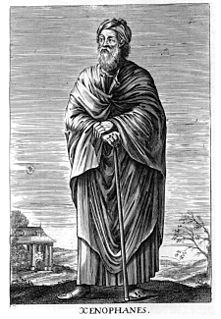A Quote by Pindar
One race there is of men, one of gods, but from one mother we both draw our breath.
Related Quotes
But it seems that something has happened that has never happened before; though we know not just when, or why, or how, or where. Men have left God not for gods, they say, but for no gods; and this has never happened before. That men both deny gods and worship gods, professing first Reason, and the money, and power, and what they call life, or race, or dialect.The church disowned, the tower overthrown, the bells upturned, what have we to do but stand with empty hands and palms upturned in an age which advances progressively backwards?
It is precisely that requirement of shared worship that has been the principal source of suffering for individual man and the human race since the beginning of history. In their efforts to impose universal worship, men have unsheathed their swords and killed one another. They have invented gods and challenged each other: "Discard your gods and worship mine or I will destroy both your gods and you!"
For the next fifty years this alone shall be our keynote - this, our great Mother India. Let all other vain gods disappear for the time from our minds. This is the only god that is awake, our own race - "everywhere his hands, everywhere his feet, everywhere his ears, he covers everything." All other gods are sleeping. What vain gods shall we go after and yet cannot worship the god that we see all round us, the Virât? When we have worshiped this, we shall be able to worship all other gods.
The Ethiops say that their gods are flat-nosed and black,
While the Thracians say that theirs have blue eyes and red hair.
“If oxen and horses and lions had hands and were able to draw with their hands and do the same things as men, horses would draw the shapes of gods to look like horses and oxen would draw them to look like oxen, and each would make the gods' bodies have the same shape as they themselves had.
There is one god, greatest among gods and men, who bears no similarity to humans either in shape or thought... but humans believe that the gods are born like themselves, and that the gods wear clothes and have bodies like humans and speak in the same way... but if cows and horses or lions had hands or could draw with the hands and manufacture the things humans can make, then horses would draw the forms of gods like horses, cows like cows, and they would make the gods' bodies resemble those which each kind of animal had itself.
India was the motherland of our race, and Sanskrit the mother of Europe's languages: she was the mother of our philosophy; mother, through the Arabs, of much of our mathematics; mother, through the Buddha, of the ideals embodied in Christianity; mother, through the village community, of self-government and democracy. Mother India is in many ways the mother of us all.
Men create their own gods and thus have some slight understanding that they are self-fabricated. Women are much more susceptible, because they are completely oppressed by men; they take men at their word and believe in the gods that men have made up. The situation of women, their culture, makes them kneel more often before the gods that have been created by men than men themselves do, who know what they've done. To this extent, women will be more fanatical, whether it is for fascism or for totalitarianism.

































